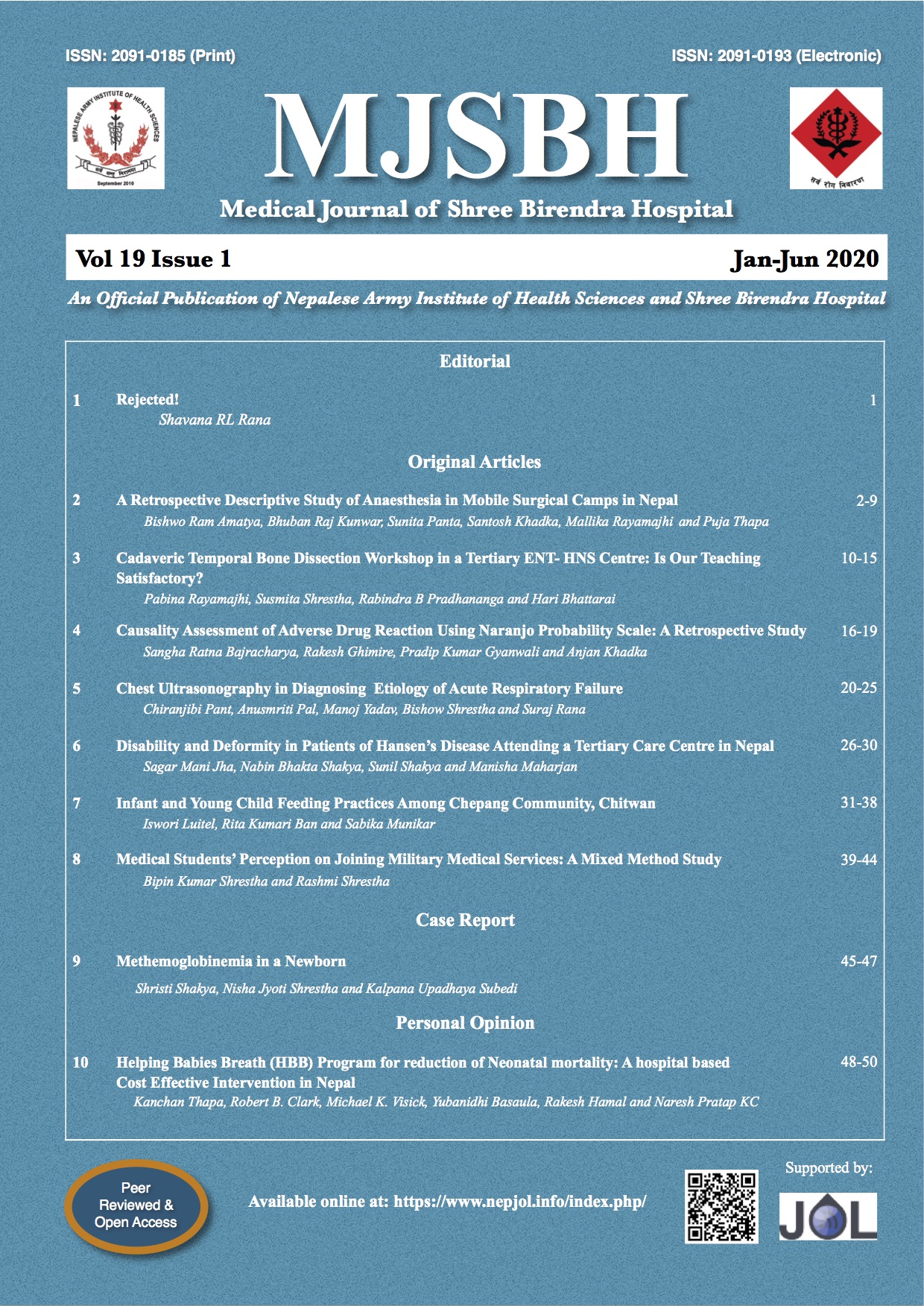A Retrospective Descriptive Study of Anaesthesia in Mobile Surgical Camps in Nepal
Keywords:
anaesthesia, camps, mobile, surgicalAbstract
Introduction: Mobile medical and surgical camps are one of the means of providing medical and surgical facilities to people living in rural areas of developing country like Nepal.
Methods: An observational cross-sectional descriptive retrospective study was done collecting data from surgical camps done by Nepali Army in six years from February 2013 to February 2019 AD. Total number of surgical cases requiring anaesthesia along with type of anaesthesia, American Society of Anaesthesiologist physical status classification and anaesthesia related complications were collected.
Results: In a six year period, total 12 mobile surgical camps were conducted by Nepali Army. Out of which, two were done in collaboration with Ministry of Health, Government of Nepal. Total 703 surgical cases were conducted. Out of which, 583 were general surgical cases and 120 were gynaecological cases. 262 cases were done in local anaesthesia, 242 cases were done in spinal anaesthesia, 108 cases were done in total intravenous anaesthesia and 91 cases were done in general anaesthesia. Hypotension, nausea, vomiting, shivering, failed spinal and difficult airway were the complications noticed during intra-operative and postoperative period.
Conclusions: Surgical outreach camps are beneficial in providing surgical care to unaffordable people living in rural and remote areas where health care facilities are limited and inaccessible. Safety of patient is the key concern in such camps. Proper organised plan is required selecting target group of populations with target surgeries per day for successful conduction of safe surgeries in such camps.
Key words: anaesthesia; camps; mobile; surgical
Downloads
Downloads
Published
How to Cite
Issue
Section
License
This license enables reusers to distribute, remix, adapt, and build upon the material in any medium or format for noncommercial purposes only, and only so long as attribution is given to the creator.




